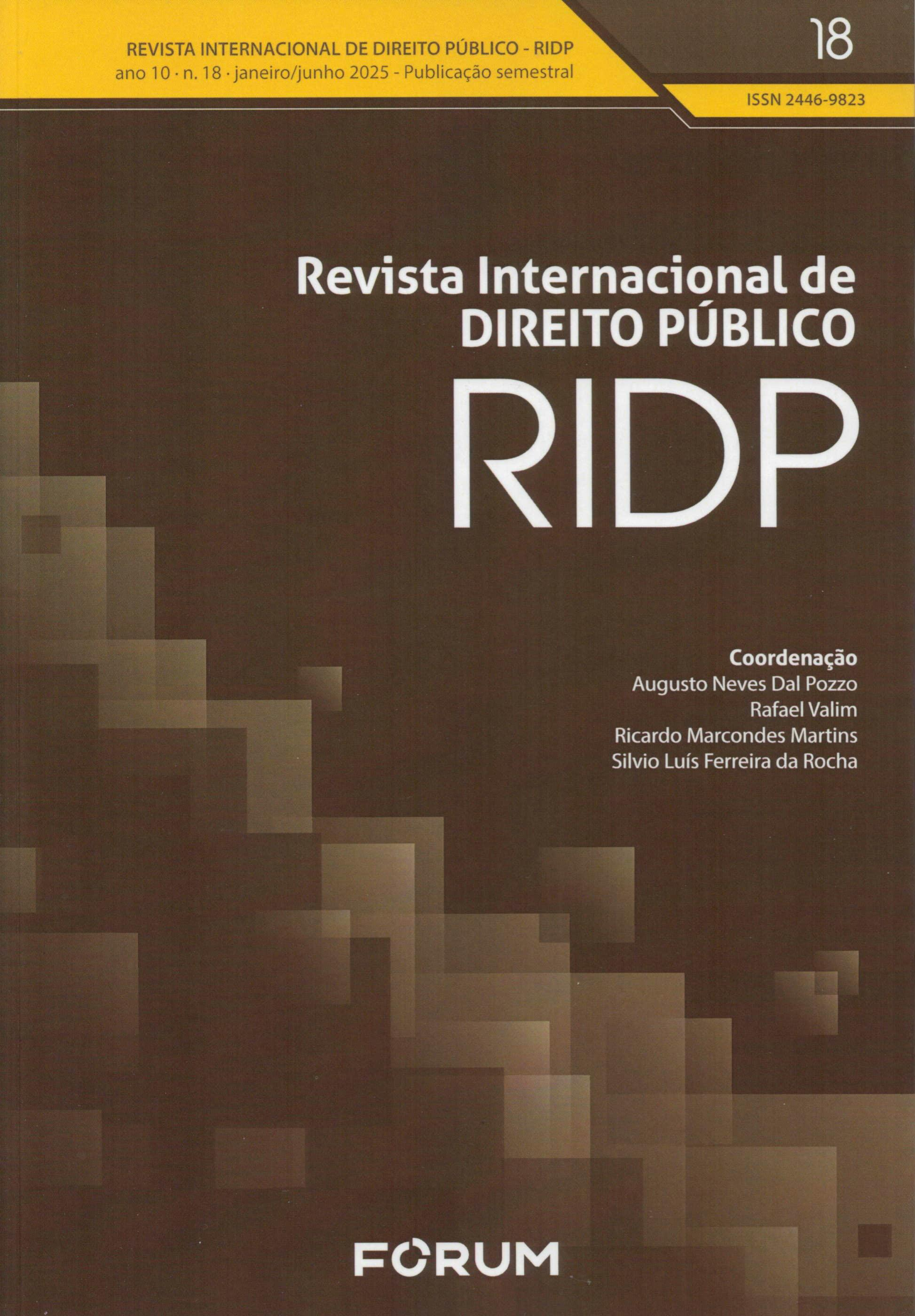PRINCIPLE OF SOLIDARITY IN BRAZILIAN ADMINISTRATIVE LAW
DOI:
https://doi.org/10.64537/ridp.v10i18.1157Keywords:
social solidarity, regulatory state, social security, prohibition of social regression, public servicesAbstract
From a sociological standpoint, every society requires a certain degree of cohesion among its members, which necessarily implies some form of solidarity. In legal terms, however, it is possible to identify societies where solidarity is absent and indifference to the suffering of others prevails. In such contexts, assistance to those in need arises from charity, an individual and voluntary initiative, rather than from solidarity as a collective social responsibility. The Brazilian Constitution explicitly establishes the objective of building a solidary society, thereby implicitly recognizing that Brazilian society is, from a legal perspective, non-solidary by default. The social security system functions as the institutional mechanism through which the State seeks to instill solidarity into the legal and social fabric. Consequently, constitutional amendments that undermine this system must be considered invalid. In the field of administrative law, the regulatory State model is fundamentally at odds with the constitutional project of a solidary society. Moreover, the legal framework governing public services must be interpreted in accordance with the principle of social solidarity enshrined in the Constitution.
Downloads
References
ABBAGNANO, Nicola. Dicionário de filosofia. Tradução de Alfredo Bosi. 4. ed. São Paulo: Martins Fontes, 2000.
BALERA, Wagner. Sistema de seguridade social. 8. ed. São Paulo: LTr, 2016.
BALERA, Wagner. Noções preliminares de direito previdenciário. São Paulo: Quartier Latin, 2004.
CHEVALLIER, Jacques. L’état régulateur”, Revue française d’administration publique, n. 111, p. 473-482, 2004.
CUNHA, Antônio Geraldo da. Dicionário etimológico nova fronteira da língua portuguesa. 2. ed., 17. reimpr. Rio de Janeiro: Nova Fronteira, 2005.
DAL POZZO, Augusto Neves; DALLARI, Adilson Abreu; MARTINS, Ricardo Marcondes. Entrevista com Adilson Abreu Dallari. Revista de Direito Administrativo e Infraestrutura, São Paulo, ano 2, n. 05, p. 359-380, abr.-jun. 2018.
DALLARI, Sueli Gandolfi; NUNES JÚNIOR, Vidal Serrano. Direito sanitário. São Paulo: Verbatim, 2010.
DURKHEIM, Émile. Da divisão do trabalho social. Tradução de Eduardo Brandão. São Paulo: Martins Fontes, 1995.
FARIA, Ernesto. Dicionário Latino-português. Belo Horizonte: Garnier, 2003.
IBGE. Pesquisa nacional por amostra de domicílios contínua: segurança alimentar – 2023. Rio de Janeiro: IBGE, 2024. Disponível em: https://biblioteca.ibge.gov.br/visualizacao/livros/liv102084.pdf. Acesso em 27.09.2024.
MARTINS, Ricardo Marcondes. Regulação administrativa à luz da Constituição Federal. São Paulo: Malheiros, 2011.
MARTINS, Ricardo Marcondes. Teoria jurídica da liberdade. 2. ed. São Paulo: Contracorrente, 2023.
MARTINS, Ricardo Marcondes. Hermenêutica constitucional. Revista de direito administrativo e infraestrutura - RDAI. São Paulo, ano 07, n. 27, p. 83-142, out.-dez. 2023.
NOGUEIRA, Ataliba. O Estado é meio e não fim. São Paulo: Saraiva, 1955.
NUNES JÚNIOR, Vidal Serrano. A cidadania na Constituição de 1988. São Paulo: Verbatim, 2009.
PNUD - Programa das Nações Unidas para o Desenvolvimento Humano. Relatório do Desenvolvimento Humano 2023/2024. Disponível em: <https://hdr.undp.org/system/files/documents/global-report-document/hdr2023-24reportpt.pdf>. Acesso em 27.09.2024.
Downloads
Published
How to Cite
Issue
Section
License
Copyright (c) 2025 Revista Internacional de Direito Público - RIDP

This work is licensed under a Creative Commons Attribution-NonCommercial-ShareAlike 4.0 International License.


